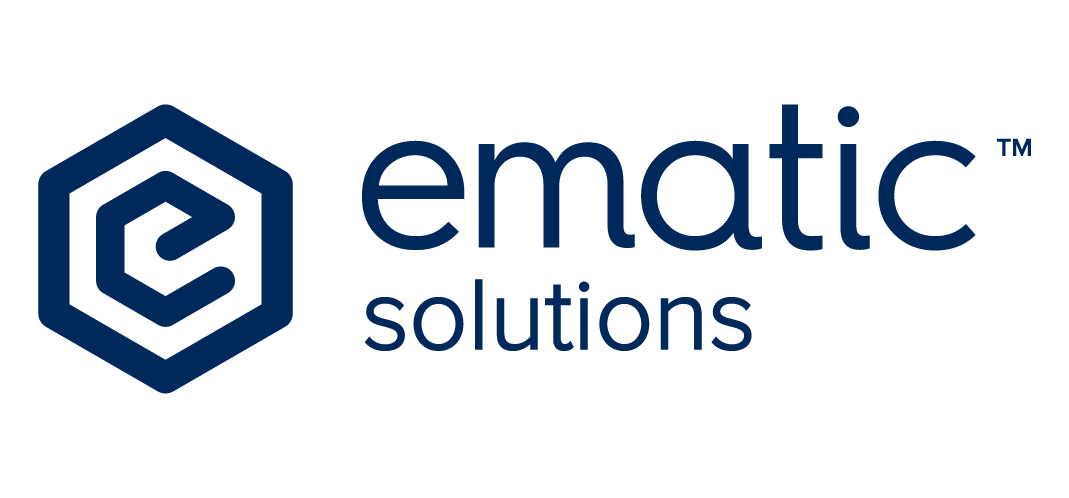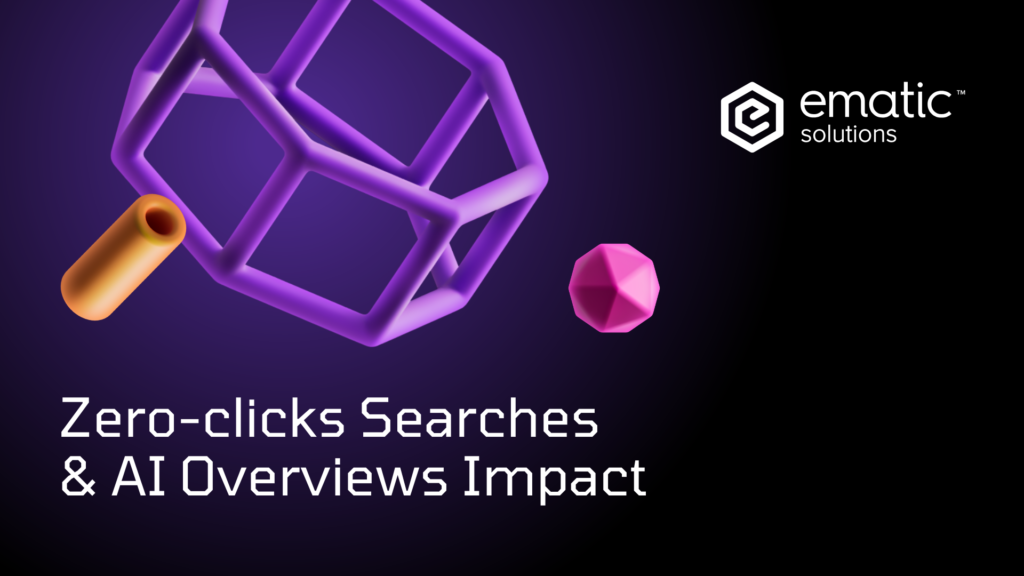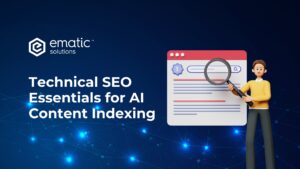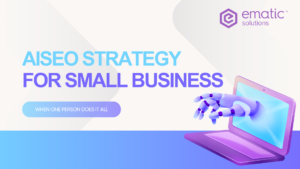In the past, securing a top spot on Google meant a steady stream of visitors. But today, that reality has shifted. The rise of zero-click searches and Google’s AI Overviews is changing how users consume information—and how businesses need to approach SEO.
What Are Zero-Click Searches?
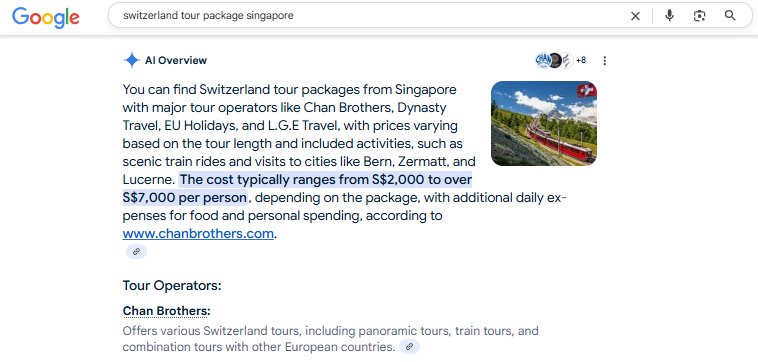
A zero-click search happens when users get the answer they need directly on the search results page, without visiting any website. Common examples include:
- Weather updates (“Kuala Lumpur weather today”)
- Definitions (“What does backlink mean?”)
- Currency & unit conversions (“USD to MYR”)
- Featured snippets that pull a paragraph from a site
- Knowledge panels with brand or topic summaries
Studies show over 50% of searches end without a click, and in mobile searches, the percentage can be even higher.
Why? Because Google wants to keep users on its platform longer—making search more of an answer engine than a gateway.
The Rise of AI Overviews
Google has taken this even further with AI Overviews, a feature that generates conversational summaries for queries. Instead of one featured snippet, users see an AI-generated response that pulls information from multiple websites.
This has three major consequences:
- Less organic traffic – Users may not need to click through, since the AI already gives them a full summary.
- Higher competition for visibility – Being cited inside an AI Overview can be more valuable than ranking first.
- Shift in SEO priorities – The new game is not just about clicks, but about visibility, authority, and trustworthiness.
How the AI Overview Flow Works
Think of a user journey today:
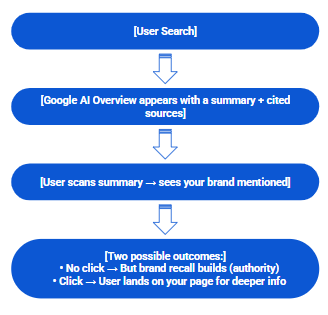
🔑 Even if the user doesn’t click, your brand has already been positioned as a trusted authority.
Why This Matters for Businesses
1. Organic Traffic Declines
Websites that used to get steady traffic for informational queries may see drops as users engage with AI answers instead.
2. New Gatekeeper: AI Summaries
It’s no longer enough to rank on page one, your content needs to be structured and credible enough for Google’s AI to pull into its summaries.
3. Changing Success Metrics
Traditional SEO was all about ranking positions and traffic volume. Now, metrics like brand mentions, authority signals, and impressions inside AI answers are equally important.
Risks for Businesses & Publishers
- Loss of ad revenue for publishers that rely on pageviews.
- Greater reliance on Google’s interpretation of your content.
- More competition for fewer outbound clicks.
For smaller businesses, this may feel like a disadvantage, but there are still ways to turn this shift into an opportunity.
Opportunities in the Zero-Click Era
1) Brand Authority through Citations
- If Google AI cites your content, your brand gains instant trust. Even without clicks, users remember names they see repeatedly.
2) Optimizing for Featured Sources
- Use structured data and concise answers to increase the chance of being chosen as a citation.
3) Diversifying Beyond Google
- Don’t depend only on organic traffic—invest in email, social media, YouTube, and direct brand-building.
4) Targeting Transactional Queries
- While informational searches are going zero-click, purchase-intent keywords (like “buy sofa online Malaysia”) still drive clicks.
How to Adapt Your SEO Strategy in 2025
1. Write for Answer Engines, Not Just Search Engines
Create content that answers questions clearly. Use headings like “What is…?”, “How to…?”, and “Why does…?” to make your pages scannable and AI-friendly.
2. Use Structured Data
Implement schema markup (FAQ, How-To, Product, Review). This helps search engines recognize your content format and increases the chance of being cited.
3. Strengthen E-E-A-T (Experience, Expertise, Authoritativeness, Trustworthiness)
Google prioritizes trustworthy content. Add expert author bios, cite credible sources, and include original insights to boost authority.
4. Create Conversational, Long-Tail Content
AI Overviews often surface content that matches natural language queries. Writing in a clear, conversational style improves your chances of being pulled in.
5. Track Beyond Traffic
Clicks alone don’t tell the whole story anymore. Businesses should monitor:
- Citations inside AI summaries
- Brand visibility impressions
- Engagement and conversion from smaller but higher-quality traffic
Traditional SEO vs AI Overview SEO
| Aspect | Traditional SEO | SEO in the AI Overview Era |
| Main Goal | Rank #1 for keywords | Be cited in AI summaries |
| Traffic Source | Organic clicks from search results | Brand mentions + authority citations |
| Content Style | Keyword-focused | Concise, question-driven answers |
| Success Metrics | Click-through rate, traffic | Visibility, credibility, brand recognition |
| Optimization Tools | Keywords, backlinks | Structured data, E-E-A-T, clarity |
The Future of SEO Beyond 2025
Looking ahead, SEO is moving from a click economy to an attention and authority economy. Success won’t just be about who gets the most traffic, but about:
- Who is trusted enough to be cited by AI engines.
- Which brands stay visible across multiple platforms (Google, TikTok, YouTube, ChatGPT, etc.).
- Who adapts faster to evolving search behaviors.
For businesses, the new question is:
👉 “Even if users don’t click, how do we make sure they see—and remember—our brand?”
Zero-click searches and AI Overviews are transforming SEO. Instead of fearing traffic drops, smart businesses should adapt by optimizing for visibility, authority, and brand recognition.
✅ In 2025 and beyond, the winners won’t just be the sites with the most clicks—they’ll be the ones users trust enough to read inside AI-driven answers.
Curious About SEO? Contact Us Now for a Free Website Audit!
